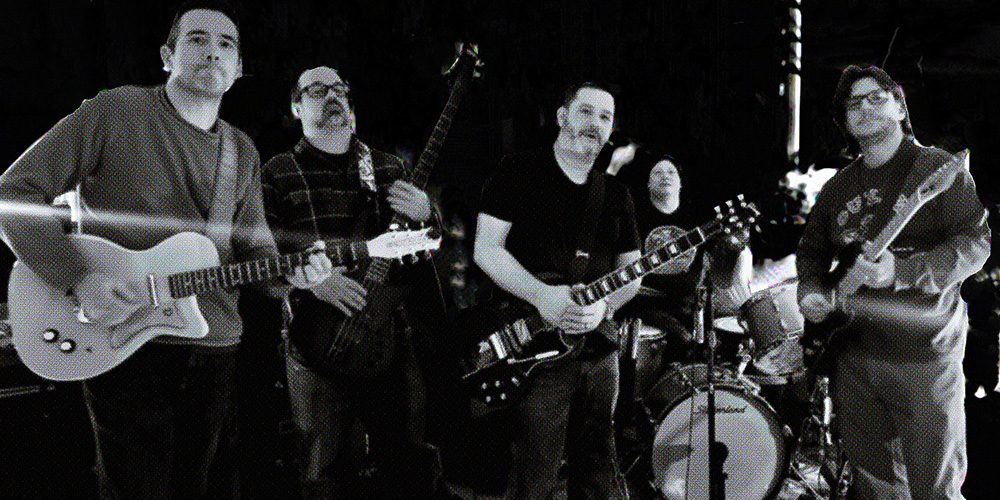There’s a sweet, chaotic magic in starting a band in your 20s: the dreams are bigger than the rehearsal space, the gear is crap, the arguments are passionate, and everyone thinks they’re going to be signed and tour.
But if you’re like me, someone who’s nudging up against 50 and still haunted (in the best way) by melodies and crowd noise, you might be thinking: Could I start a band again? Would it feel the same? Spoiler Alert: No. And it could be a good thing.
“In wine there is wisdom, in beer there is Freedom, in water there is bacteria.” ~ Ben Franklin
Here’s what I’d do differently this time if I started a band in my 40s.
1. For The Love Of Making Music
In your 20s, the goal was usually a fuzzy combination of “get signed,” “get noticed,” and “get out of this town.” The music was half therapy, half marketing plan.
Now? I’d start a band because I love making music. No “industry showcase,” booking agents, managers, sound guys, and honestly, thank God. The stakes are lower. The music might be better, and frankly, I don’t care if I ever stand on a stage again.
2. Bandmates and Friends
When I started playing music, bands often formed out of friendships, proximity, or just finding someone who liked the same records and could play loud. And honestly, that was usually enough to get started. I was lucky. My friends were my bandmates.
These days, it’s less about technical skill alone and more about the kind of people you want to share a room and a creative process with. Sure, showing up on time, communicating openly, and offering feedback without turning everything into a standoff is super important. Still, for me, humans who don’t make the room heavier when they enter it make for better bandmates.
Musical chemistry still matters, but emotional maturity? That’s what really keeps things moving forward.
3. Creative Differences
At 24, it felt like everything was up for debate—every lyric, every arrangement, every snare tone turned into a full-on negotiation, like we were settling matters of global importance.
Now? Let’s record both versions and see which one sounds best. Or, let’s agree to disagree and save it for a solo project. No hard feelings.
Ego gets quieter with age, or at least you learn when to pick your battles.
4. I’d Be Serious, But Not Delusional
Would I still take it seriously? Absolutely. I’d want to rehearse regularly, write real songs, maybe record and release them. Maybe (BIG MAYBE) even gig a little.
But I wouldn’t:
- Expect a “shot at the big time.”
- Sacrifice everything for the band.
- Treat every setback like a sign from the universe.
Serious doesn’t have to mean joyless, and mature doesn’t have to mean boring.
5. I’d Use What I’ve Learned
In our 20s, gear was often whatever could be found, borrowed, or pulled together: half-dead 9V batteries, sticky patch cables, amps with mystery hums, and recording straight to cassette if someone remembered to bring one. It was rough, but it got the job done.
By the time many musicians reach their 40s, things tend to feel a little more dialed in. Maybe it’s a decent home studio, several solid mics, and a growing sense of what actually works. Tools like DAWs, EQ, and plug-ins start to feel less like mysteries and more like part of the creative process. With experience comes a certain ease, not because everything is perfect, but because there’s less second-guessing and fewer detours. It’s less about chasing every idea and more about following the ones that matter, without the drama.
6. I’d Make Less Noise, And More Music
Time tends to feel more limited in midlife between work, family, and the occasional sore back or knee. Rehearsals might happen a couple of times a month instead of several nights a week. Songs actually get finished, rather than disappearing into endless jams or perfectionist loops. Gigs, if they were to happen, aren’t about playing every club in town and opening for national acts anymore. They’re chosen carefully and crafted based on fit and feeling. Music gets released not for metrics but for meaning. The focus shifts toward creating with intention, rather than chasing momentum.
Final Thoughts: You Might Make Your Best Music Now
Starting (or playing in) a band in your 40s isn’t about chasing a dream; it’s about returning to something real. Something you still love. Something that’s maybe been waiting quietly in your guitar case or hard drive for a couple of decades.
So if you’ve been thinking about it, do it. Write the songs. Find your people. Be the band you wish you’d been when you were 24.
You might be surprised how good it sounds when nobody’s trying to “make it.”

